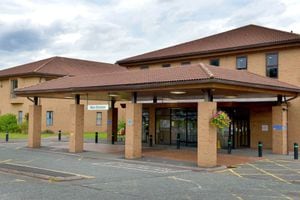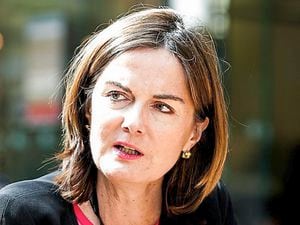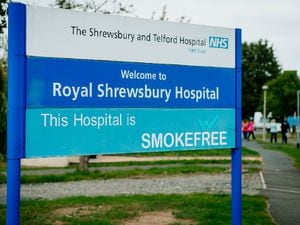Concerns around anaesthetic cover at Telford hospital raised by inspectors
Concerns around anaesthetic cover at Telford hospital have been raised following the latest inspection by a health watchdog.

An inspection of critical care services was carried out at Princess Royal Hospital in January following concerns about the safety and quality of the provision of out of hours anaesthetic cover.
A new report, published today by the Care Quality Commission (CQC), says anaesthetic staff vacancies meant there were not always enough skilled staff to carry out the right care and treatment.
Some medical staff did not always feel respected, supported or valued by senior staff, according to inspectors.
The watchdog also found that some general anaesthetic consultants, who had been providing cover for many years, felt that they did not have the up-to-date skills and knowledge to care for patients with more complex needs.
Some good examples of care were also found, including effective governance processes meaning staff at all levels were clear about their roles and accountabilities.
The CQC said doctors, nurses and other healthcare professionals also worked together as a team to benefit patients and provide good care.
Wards and services visited during the inspection included critical care, the critical care outreach team, the maternity delivery suite, the children’s ward, the emergency department, the head and neck surgical ward, the acute stroke unit, a general medical ward and a respiratory ward.
The Shrewsbury and Telford Hospital NHS Trust remains with a rating of 'requires improvement' for critical care services, and is rated 'inadequate' overall by the CQC.
The CQC’s interim deputy chief inspector, Fiona Allinson, said: “When inspectors visited PRH, they found some areas where improvements were needed to ensure enough anaesthetic staff are not only available but sufficiently supported and respected in their roles.
“Staff told us they no longer reported all incidents and near misses due to time constraints and because of past experiences where they felt action was not always taken in response.
'Challenging'
"Managers should continue to explore ways of recruiting to vacancies in critical care.
"They should consider how they listen to staff supporting the existing critical care service to ensure they are confident to undertake the role.
“Hospitals are facing a particularly challenging time, so it was pleasing to see some examples of good practice too.
"All leaders were aware of current challenges and the clinical director had improved governance processes and strengthened this through the encouragement of cross directorate working.
“We have reported our findings to the trust leadership, which knows what it must do to bring about further improvements and ensure it maintains any already made."
She said the CQC would support the trust to keep people safe during the pandemic, and will work with NHS England and NHS Improvement to ensure additional support is in place where needed.
Dr Arne Rose, medical director at SaTH, which runs PRH and Royal Shrewsbury Hospital, said the CQC’s inspections were an important part of the trust's continuing improvement.
He added: “We are pleased that, during their visit, inspectors found examples of good practice and stated that doctors, nurses and other healthcare professionals worked together as a team to benefit patients and provide good care.
“The shortage of anaesthetists is a recognised national issue which we are working to address and which, as the CQC noted, we are mitigating with cross-site working between our two hospitals and the use of general anaesthetic staff.
“We are grateful to the CQC for acknowledging that the leadership team is aware of current challenges and that we have improved and strengthened our process while we seek to address these.”





